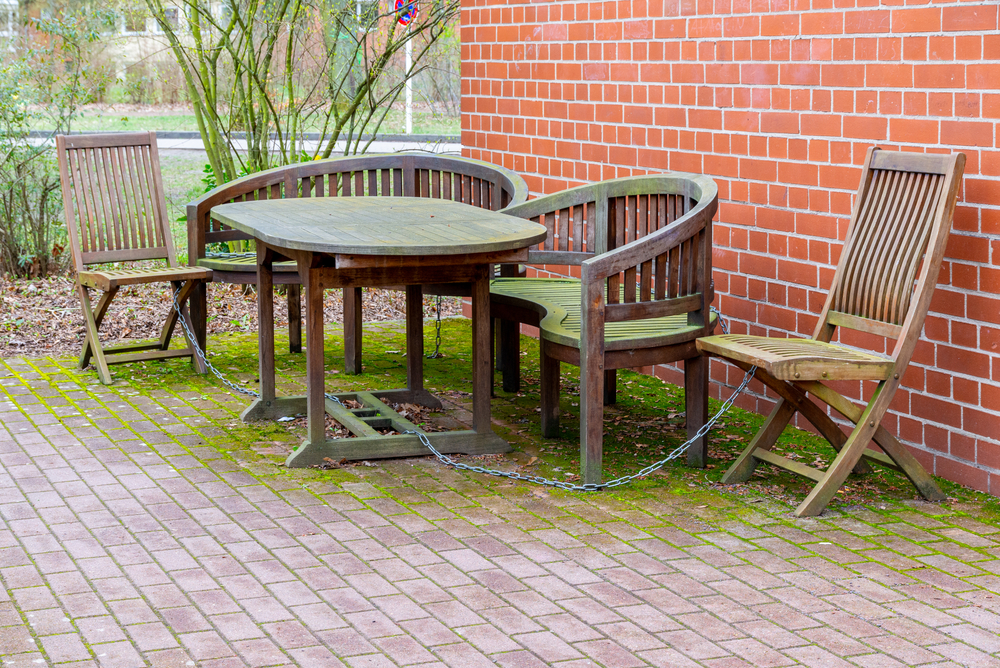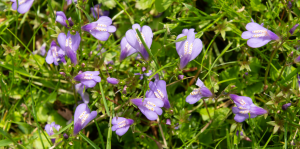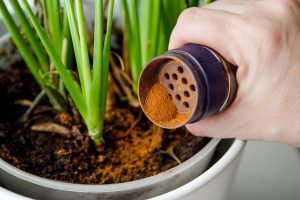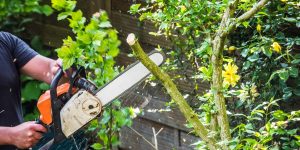Eco-friendly ways to beat algae this year.
Others are reading now
Spring is here, and that means it’s time to reclaim your patio from the clutches of winter.
If you’ve noticed your outdoor surfaces turning as green as your lawn, don’t worry.
There’s a green and effective way to tackle this common issue without reaching for harsh chemicals or old-school remedies like vinegar or soap.
Understanding the Green Menace
What you’re seeing on your patio tiles is millions of tiny algae plants. Algae thrive in damp conditions with minimal light—conditions that winter and early spring provide in abundance.
Also read
Occasionally, moss, which prefers to grow in joints and cracks, is also lumped into this category. Together, they form the pesky green film known as green algae.
Scrub Away the Green
The most environmentally friendly method to remove green algae involves using sharp sand mixed with water. Armed with a brush or broom, this simple yet effective combo will help you scrub your tiles or wood clean, ensuring that no harm comes to the environment, your plants, or your pets.
Reduce, Replace, Rejoice
If the idea of annual scrubbing doesn’t appeal to you, consider reducing the number of tiles in your garden. Introducing more plants not only cuts down on maintenance but enhances your garden’s drainage and biodiversity. Strong ground cover plants can drastically reduce upkeep and add visual appeal.
Prevention: The Best Cure
Can’t reduce hard surfaces? Keep them clean and sweep regularly to prevent algae buildup. For those pesky weeds sprouting through the cracks, a hook-shaped joint scraper can be your best friend.
This not only keeps your pathways neat but also discourages the growth of unwanted plants and algae.
For those who prefer a more laid-back approach, why not embrace the green?
Planting decorative flora between the paving stones can transform your paths into lush, picturesque garden features. Using native joint plant mixes can enhance the beauty and ecological balance of your outdoor space.
The Soap and Vinegar Myth
Many believe that cleaning patios with green soap or vinegar is effective.
However, these methods can be less efficient and potentially harmful. Soap can degrade soil quality and harm aquatic life if washed into ponds, while vinegar, especially cleaning vinegar, can acidify the soil and damage calcareous tiles.
Keep Wooden Fences Clear
Similar to tiles, wooden fences can also suffer from algae. Clean them using a stiff brush, sharp sand, and water.
Planting a hedge instead of a fence can prevent algae growth and enhance your garden’s privacy and aesthetics.
Spring cleaning your outdoor areas doesn’t have to be a chore or an environmental hazard. With these tips, you can enjoy a beautiful, sustainable outdoor space that’s ready for those sunny days ahead.








